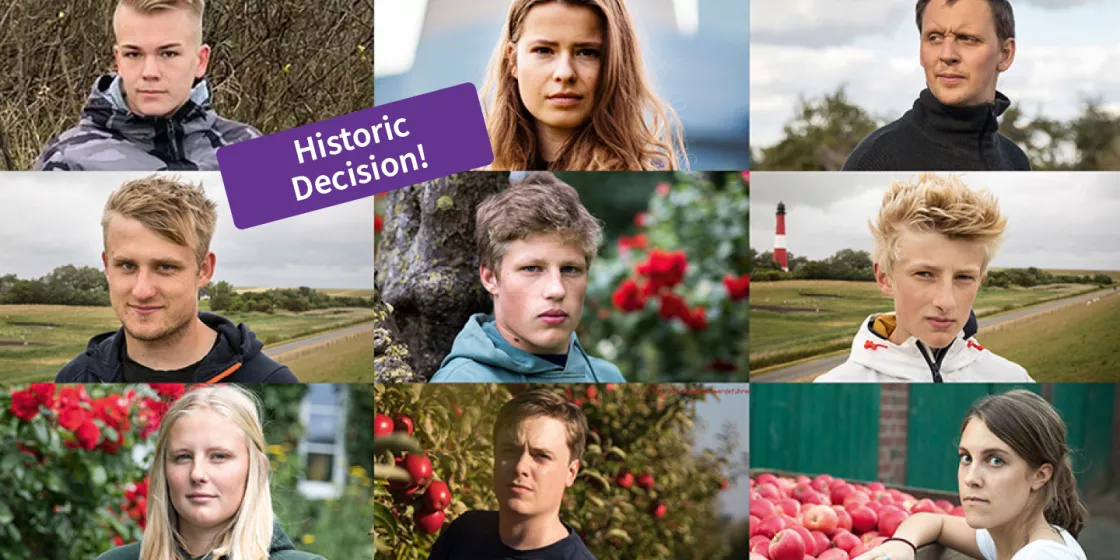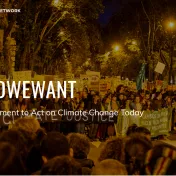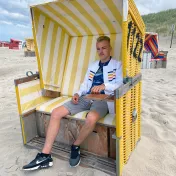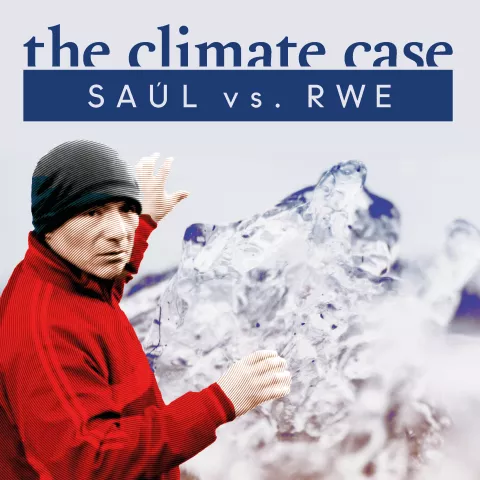1. Was steht im Beschluss des Bundesverfassungsgerichts?1. Was steht im Beschluss des Bundesverfassungsgerichts?
Am 29.4.2021 hat das Bundesverfassungsgericht (BVerfG) seine Entscheidung bekannt gegeben und damit einen neuen Maßstab für Klima- und Grundrechtsschutz gesetzt. Das BVerfG stellt fest, dass die heute unzureichende Klimaschutzpolitik Freiheits- und Grundrechten von morgen beeinträchtigt. Die verfassungsrechtlich notwendige Reduktion von Treibhausgasen darf nicht länger in die Zukunft und damit einseitig zu Lasten junger Generationen hinausgezögert werden.
Das Bundesklimaschutzgesetz von 2019 wird damit in weiten Teilen für verfassungswidrig erklärt und muss entsprechend nachgebessert werden. Der Gesetzgeber ist aufgefordert, sich dabei an den Vorgaben der Wissenschaft zu orientieren und bis Ende 2022 einen schlüssigen Emissionsreduktionspfad mit dem Ziel der Treibhausgasneutralität vorzulegen. Dabei müssen die Freiheits- und Grundrechte der jungen und künftigen Generationen gewahrt und das CO2 Budget entsprechend generationengerecht aufgeteilt werden.
In seinem Beschluss, betont das BVerfG auch die internationale Verantwortung Deutschlands in der globalen Klimakrise und stellt zugleich fest, dass ein Staat sich seiner Verantwortung durch den Hinweis auf die Treibhausgasemissionen anderer Staaten nicht entziehen kann.
Die Kernaussagen der Entscheidung lauten:
- Klimaschutz ist ein Menschenrecht
- Das Grundgesetz wird generationengerecht ausgelegt
- Der Klimawandel ist real und der Gesetzgeber muss ihm entgegenwirken
- Der Gesetzgeber muss sich an den Vorgaben der Wissenschaft orientieren und schlüssige Konzepte zur Treibhausneutralität entwickeln
- Klimaschutz ist justiziabel, heute und in Zukunft
- Klimaschutz gehört zum Grundrechtsschutz
Weitere Informationen zum Beschluss finden Sie in der Kurzanalyse von Rechtsanwältin Dr. Roda Verheyen
Das Bundesverfassungsgericht hat über insgesamt vier Klima-Verfassungsbeschwerden entschieden, eine davon wurde von Germanwatch, Greenpeace und Protect the Planet unterstützt.
2. Warum ist die Entscheidung historisch?2. Warum ist die Entscheidung historisch?
Die Entscheidung ist bahnbrechend und historisch zugleich: Die Entscheidung erhebt die Temperaturziele des Pariser Abkommens und das Erreichen von Klimaneutralität in Verfassungsrang: Artikel 20a des Grundgesetzes, der „in Verantwortung für die künftigen Generationen die natürlichen Lebensgrundlagen und die Tiere“ schützt, wird als Prüfmaßstab staatlichen Handelns einklagbar (justiziabel). Das Bundesverfassungsgericht nimmt mit seiner Entscheidung eine zeitgemäße Neubestimmung des Freiheitsbegriffs in der Klimakrise vor. Aus der Verpflichtung des Staates, die Freiheitschancen der jungen Generation auch für die Zukunft zu schützen, ergibt sich eine Verpflichtung, in der Gegenwart mehr Klimaschutz zu betreiben.
3. Wie geht es nach der Entscheidung jetzt weiter?3. Wie geht es nach der Entscheidung jetzt weiter?
Das Gericht gibt vor: Der Gesetzgeber muss das Klimaschutzgesetz von 2019 bis Ende 2022 nachbessern. Am 24.06.2021 hat der Bundestag ein neues Klimaschutzgesetz verabschiedet. Wir begrüßen, dass die Bundesregierung das Klimaschutzgesetz als Reaktion auf den Beschluss in einem unvorstellbaren Tempo überarbeitet hat. Das Klimaziel für 2030 wurde auf mindestens 65 Prozent erhöht, erstmals ein Minderungsziel von 88 Prozent für das Jahr 2040 definiert und das Erreichen der Klimaneutralität von 2050 auf 2045 vorgezogen. Das sind große Schritte in die richtige Richtung. Sie waren vor dem Beschluss des Gerichts politisch undenkbar gewesen. Doch auch die angehobenen Klimaziele bringen Deutschland noch nicht auf einen Kurs, der kompatibel mit dem 1,5 Grad-Limit sowie der Entscheidung des Bundesverfassungsgerichts ist.
Gemeinsam mit unserer Rechtsanwältin Roda Verheyen werden wir diesen historischen Beschluss im Detail analysieren und in den nächsten Wochen, Monaten und Jahren dessen Umsetzung aufmerksam begleiten.
4. Wie kam es zur Verfassungsbeschwerde?4. Wie kam es zur Verfassungsbeschwerde?
2020 entschieden neun junge Menschen zwischen 15 und 32 Jahren aus verschiedenen Regionen Deutschlands vor das Bundesverfassungsgericht zu ziehen, um das 2019 verabschiedete Bundesklimaschutzgesetz überprüfen zu lassen. In ihren Augen sei dies zu schwach, um die Folgen der Klimakrise heute und in Zukunft effektiv einzudämmen.
Das Leben der Kläger:innen reicht in die zweite Hälfte des 21. Jahrhunderts, in dem Auswirkungen der Erderwärmung eine vielfach höhere Intensität erreichen werden, als dies bereits gegenwärtig schon der Fall ist. Ihre Familien sind im Tourismus oder in der Landwirtschaft tätig und leben auf Inseln wie Pellworm oder Langeoog. Die Klimakrise in Form von Extremwetterereignissen und Meeresspiegelanstieg spüren sie schon jetzt und sie machen sich Sorgen um ihre Zukunft. Die Bundesregierung kommt mit ihrer zu schwachen Klimapolitik ihrem im Grundgesetz verankerten Auftrag zum Schutz ihrer Grundrechte aus Leben und körperliche Unversehrtheit, auf Eigentum und Beruf nicht nach.
Die Verfassungsbeschwerde geht auf Klagen zurück, die in Deutschland und auf EU-Ebene geführt wurden: Einige der Beschwerdeführer:innen hatten gemeinsam mit Greenpeace vor dem Berliner Verwaltungsgericht gegen das zu schwache nationale Klimaziel 2020 geklagt. Lüke Recktenwald aus Langeoog war mit seiner Familie für ambitionierte 2030-EU-Klimaziele vor den Europäischen Gerichtshof gezogen. Ebenso wie Luisa Neubauer von Fridays for Future schloss er sich Anfang 2020 der Verfassungsbeschwerde an.
Bereits im November 2018, also noch vor Verabschiedung des Klimaschutzgesetzes, hatte ein Bündnis bestehend aus dem Solarenergie-Förderverein Deutschland (SFV), dem Bund für Umwelt und Naturschutz Deutschland (BUND) und weiteren Einzelkläger:innen eine Verfassungsbeschwerde erhoben. Mehr Informationen finden Sie hier.
Daneben haben Anfang 2020 auch weitere junge Erwachsene aus Deutschland sowie vom Klimawandel betroffene Menschen aus Bangladesch und Nepal Verfassungsbeschwerden eingereicht. Sie werden von der Deutschen Umwelthilfe (DUH) unterstützt. Mehr Informationen finden Sie hier.
5. Was ist in dem Verfahren genau passiert?5. Was ist in dem Verfahren genau passiert?
Am 12. Februar 2020 reichten die neun jungen Kläger:innen ihre Verfassungsbeschwerde beim Bundesverfassungsgericht ein. (AZ: 1 BvR 288/20).
Am 19. Juni 2020 verschickte das Bundesverfassungsgericht die Beschwerde an Bundestag und -rat, Kanzleramt, Bundesinnen- und justizministerium sowie an alle Landesregierungen mit der Aufforderung, Stellung zu nehmen.
Im Oktober 2020 reichten Bundesregierung und Bundestag ihre Stellungnahmen ein.
Am 11. Februar 2021 reagierten die Beschwerdeführer:innen auf die Stellungnahmen der Bundesregierung und des Bundestags mit einer Erwiderung.
Am 29. April 2021 gab das Bundesverfassungsgericht seinen Beschluss vom 24. März 2021 bekannt.
6. Wer sind die Kläger:innen und inwieweit sind sie von der Klimakrise betroffen?6. Wer sind die Kläger:innen und inwieweit sind sie von der Klimakrise betroffen?
Lüke Recktenwald (18 Jahre) ist Schüler und lebt auf Langeoog. Seine Familie ist seit vier Generationen auf der Nordseeinsel zu Hause und betreibt ein Hotel und ein Restaurant. Lüke spürt schon jetzt die Auswirkungen der Klimakrise: durch den Anstieg des Meeresspiegels, zunehmende Sturmfluten und die daraus resultierende Erosion der Dünen ist das Eigentum und die Heimat der Familie gefährdet. Auch die Trinkwasserversorgung der Insel ist bedroht. Durch den steigenden Meeresspiegel könnte Salzwasser in die einzige Trinkwasserquelle, die sogenannte Süßwasserlinse, eindringen und auf Jahrzehnte unbrauchbar machen – mit gravierende Folgen für das Leben auf der Insel. Es ist unklar, wie lange Lüke noch auf Langeoog leben kann und ob es ihm möglich sein wird, den Familienbetrieb in Zukunft zu übernehmen. Lüke war auch Mitkläger in der europäischen Klimaklage „People‘s Climate Case”, die eine Verschärfung der Klimaziele 2030 vor dem europäischen Gerichtshof einforderte. Die Klage wurde am 25. März 2021 abgewiesen.
Die vier Geschwister Sophie (21 Jahre), Paul (20 Jahre), Hannes (17 Jahre) und Jakob (15 Jahre) Backsen stammen von der Nordseeinsel Pellworm. Ihr Hof Edenswarf ist ein Familienbetrieb aus dem 17. Jahrhundert und soll eines Tages von den Kindern übernommen werden. Auf ihrem Hof betreibt die Familie Ackerbau und Rinderzucht. Außerdem halten die Backsens Schafe auf dem Deich und vermieten Ferienwohnungen auf der Insel. Im September 2017 stand ein Drittel von Pellworm komplett unter Wasser. Pellworm liegt zum großen Teil einen Meter unter Normalnull. Bei zunehmenden Sturmfluten könnte die Insel nach einem Deichbruch volllaufen wie eine Badewanne. In Folge der Klimakrise häufen sich Extremwetterereignisse wie Starkregen oder Dürre. Steigt der Meeresspiegel, könnten die vorhandenen Deiche bald nicht mehr ausreichen, um die Insel zu schützen. Pellworm würde unbewohnbar, auch für die vier Kinder.
Lucas Lütke-Schwienhorst (32) hat von seinen Eltern das Gut Ogrosen in Vetschau (Brandenburg) übernommen, das es seit mehr als 200 Jahren gibt. Die Lütke-Schwienhorsts halten rund 120 Milchkühe und betreiben einen Hofladen. Extremwetterereignisse wie die letzten Hitzesommer mit viel zu wenig Niederschlag treffen das Gut hart: In den letzten zwei Jahren konnte im Sommer nur etwa die Hälfte des gewöhnlichen Heu- und Getreideertrags eingebracht werden. Die Tiere litten unter Hitzestress. Der zum Gut gehörende Wald ist extrem geschädigt. Die fortschreitende Klimakrise gefährdet damit das Einkommen und das Eigentum von Lucas und seiner Familie sowie das Leben der nächsten Generationen auf dem Gut Ogrosen.
Johannes und Franziska Blohm sollen einmal den traditionsreichen Obstbetrieb ihres Vaters erben. Doch ob der Jahrhunderte alte Hof die kommenden Generationen überlebt, steht immer mehr in Frage. Im Alten Land nahe Hamburg werden auf dem Biohof neben anderen Obstsorten hauptsächlich Äpfel angebaut. Die Häufung von Extremwetter sowie bislang in diesen Breiten unbekannte Schädlinge und Obstkrankheiten machen dem Bio-Betrieb zu schaffen – direkte und indirekte Folgen der Erderhitzung.
Die Kinder der Familie Backsen, Familie Lütke-Schwienhorst und Familie Blohm waren mit ihren Eltern und gemeinsam mit der Umweltorganisation Greenpeace bereits Kläger:innen in der vor dem Berliner Verwaltungsgericht geführten Klimaklage gegen die Bundesregierung.
Luisa Neubauer ist Deutschlands bekannteste Klimaaktivistin. Mit 23 Jahren gehört die Geographiestudentin der Generation an, die in der zweiten Hälfte des Jahrhunderts mit dramatischen Auswirkungen der Klimakrise konfrontiert sein wird. Die Mitbegründerin der deutschen Fridays-for-Future-Bewegung hat Ausbildung und Privatleben faktisch „ausgesetzt“, um sich zusammen mit Hunderttausenden ihrer Generation politisch und medial für mehr Klimaschutz einzusetzen. Durch ihre Beteiligung an der Klimaklage fordert sie nun auch vor Gericht wirksamen Schutz für ihre und die kommenden Generationen. Sie beteiligt sich als Privatperson an der Klage.
7. Welche Rolle spielte Germanwatch im Klageverfahren?7. Welche Rolle spielte Germanwatch im Klageverfahren?
Germanwatch und die Umweltorganisationen Greenpeace und Protect the Planet unterstützten die Verfassungsbeschwerde der neun jungen Menschen, treten aber nicht selbst als Kläger auf. Germanwatch betreut insbesondere den Kläger Lüke Recktenwald und seine Familie auf Langeoog und informiert die deutsche Öffentlichkeit über das Verfahren. Die Begleitung von Klimaklagen ist ein wichtiger Teil der Germanwatch-Strategie, um eine der globalen Klimakrise angemessenen Klimapolitik zu erreichen. Die Arbeit von Germanwatch im Bereich Klimaklagen wird durch Spenden finanziert.
8. Gibt es weltweit weitere Klagen für mehr Klimaschutz?8. Gibt es weltweit weitere Klagen für mehr Klimaschutz?
Die Verfassungsbeschwerde ist eingebettet in ein weltweites Klimaklagephänomen: Die Entscheidung des BVerfG nimmt verschiedentlich Bezug auf vorausgegangene (inter)nationale Verfahren (so z.B. die Entscheidung der Berliner Verwaltungsgerichts oder des niederländischen Hoge Raad im sog. Urgenda Fall) und wird selbst wiederum Wirkung in derzeit anderweitig anhängigen Verfahren entfalten bzw. neuen Klimaklagen Aufwind geben.
Eine Klage von jungen Menschen, die gerade im Hinblick auf Fragen von Generationsgerechtigkeit viel Aufmerksamkeit erregt ist diejenige von sechs portugiesischen Kindern und Jugendlichen vor dem Europäischen Gerichtshof für Menschenrechte (EGMR) in Straßburg. Die Klage richtet sich gegen alle 27 EU-Mitgliedsstaaten sowie Großbritannien, die Schweiz, Norwegen, Russland, die Türkei und die Ukraine - also alle Vertragsstaaten der Europäischen Menschenrechtskonvention (EMRK). Diese Staaten verletzen nach Ansicht der klagenden Jugendlichen ihre Menschenrechte, da sie ihre Treibhausgase nicht ausreichend reduzieren, um die Erderhitzung auf 1,5 Grad zu begrenzen.
Neben den Kindern aus Portugal haben auch Greta Thunberg und 15 weitere Kinder haben beim UN-Kinderrechtsausschuss in Genf im September 2019 eine Sammelklage eingereicht. Der Ausschuss soll feststellen, dass Argentinien, Brasilien, Deutschland, Frankreich und die Türkei für die Klimakrise mitverantwortlich sind und damit Kinderrechte verletzen. Die Kinder berufen sich auf die weltweit gültigen Kinderrechte bzw. auf das dritte Zusatzprotokoll der UN-Kinderrechtskonvention zum sogenannten Individualbeschwerdeverfahren. Mehr Informationen finden Sie hier.
In Kolumbien haben im Jahr 2018 25 junge Menschen im Alter von 7-25 Jahren eine Klage gegen die kolumbianische Regierung, mehrere Lokalregierungen und eine Reihe von Unternehmen eingereicht. Die jungen Leute argumentierten, dass die Regierung im Klimaschutz versagt habe. Insbesondere durch die fortschreitende massive Abholzung des Amazonas werden ihre Grundrechte auf eine gesunde Umwelt, Leben, Gesundheit, Nahrung und Wasser bedroht. Im April 2018 entschied der Oberste Gerichtshof zugunsten der Jugendlichen, erkannte das kolumbianische Amazonasgebiet als Rechtssubjekt an und forderte die Regierung auf, Maßnahmen gegen die Abholzung im Amazonasgebiet umzusetzen. Im August 2019 hat das Bezirksgericht von Bogota eine Reihe von Anhörungen angesetzt, um die Umsetzung der Entscheidung des Obersten Gerichtshofs zu überprüfen.
9. Wie ist die Entscheidung des Europäischen Gerichtshofes im People’s Climate Case im Lichte des BVerfG-Urteils einzuschätzen? 9. Wie ist die Entscheidung des Europäischen Gerichtshofes im People’s Climate Case im Lichte des BVerfG-Urteils einzuschätzen?
Im März 2021 erst hatte der Europäische Gerichtshof (EuGH) eine Klage von zehn Familien und einem samischen Jugendverband auf ambitioniertere EU-2030-Klimaziele abgewiesen - mit der Begründung, dass der Klimawandel alle betreffe, die Kläger:innen deshalb nicht einzigartig und individuell betroffen und dementsprechend nicht klagebefugt seien. Im Gegensatz zum EuGH hat das Bundesverfassungsgericht den Rechtsschutz für Klimawandelbetroffene nicht verweigert: Eine Betroffenheit vieler Personen stehe einer individuellen Grundrechtsbetroffenheit gerade nicht entgegen, so die Karlsruher Richter:innen. Die Entscheidung des BVerfG könnte durchaus dazu beitragen, dass eine Klage in ein paar Jahren auch auf EU Ebene anders beurteilt wird.
Außerdem wird sich das Urteil des BVerfG und die Nachbesserungen des deutschen Kimaschutzgesetzes durch die Bundesregierung auch politisch auf EU-Ebene auswirken: Im Rahmen der Verhandlungen über die Umsetzung des neuen EU Klimaziels für 2030- dem sogenannten Fit-for-55-Paket- wird bei jeder Verordnung und Richtlinie die Frage sein, ob sie ausreichend ambitioniert ausgestaltet ist, um künftige Generationen zu schützen.
10. Welche weiteren Klimaklagen unterstützt Germanwatch? 10. Welche weiteren Klimaklagen unterstützt Germanwatch?
Neben der Verfassungsbeschwerde und dem People’s Climate Case unterstützt Germanwatch zwei weitere Verfahren:
Seit 2015 unterstützt Germanwatch den peruanischen Andenbauern und Bergführer Saúl Luciano Lliuya bei einer zivilrechtlichen Klimaklage gegen den deutschen Energiekonzern RWE. Durch die klimawandelbedingte Gletscherschmelze ist ein Gletschersee oberhalb der auf 3.000 m Höhe gelegenen Andenstadt Huaraz stark angewachsen. Im Falle eines Dammbruchs drohen Saúl Luciano Lliuyas Haus sowie einem großen Teil der unterhalb des Gletschersees gelegenen Stadt Huaraz eine Flutkatastrophe. RWE ist als Europas größter CO2-Emittent für rund ein halbes Prozent aller von Menschen verursachten Treibhausgasemissionen weltweit seit Beginn der Industrialisierung verantwortlich. Saúl Luciano Lliuya fordert in diesem Musterprozess, dass der Konzern nun für rund 0,5 % der am Gletschersee notwendigen Schutzmaßnahmen aufkommt. Die Klage ist beim Oberlandesgericht Hamm anhängig und befindet sich derzeit in der Beweisaufnahme. Im Mai 2022 fand dazu ein Ortstermin in Huaraz mit den beteiligten deutschen Richtern, Anwält*innen und Gutachtern statt.
Anfang Mai 2021 hat Germanwatch zudem über das europäische Netzwerk CAN-Europe in dem Verfahren der sechs portugiesischen Kinder und Jugendlichen vor dem Europäischen Gerichtshof für Menschenrechte in Straßburg (s.o.) einen Antrag als Streithelfer beantragt und dabei auch die rechtlichen Erwägungen, die der jüngsten Entscheidung des Bundesverfassungsgerichts zugrunde lagen, vorgetragen.
11. Wie kann ich Germanwatch unterstützen?
11. Wie kann ich Germanwatch unterstützen?
Die Arbeit von Germanwatch im Bereich Klimaklagen beruht auf Spenden. Gerne können Sie uns durch eine zweckgebundene Spende unterstützen. Vielen Dank!











